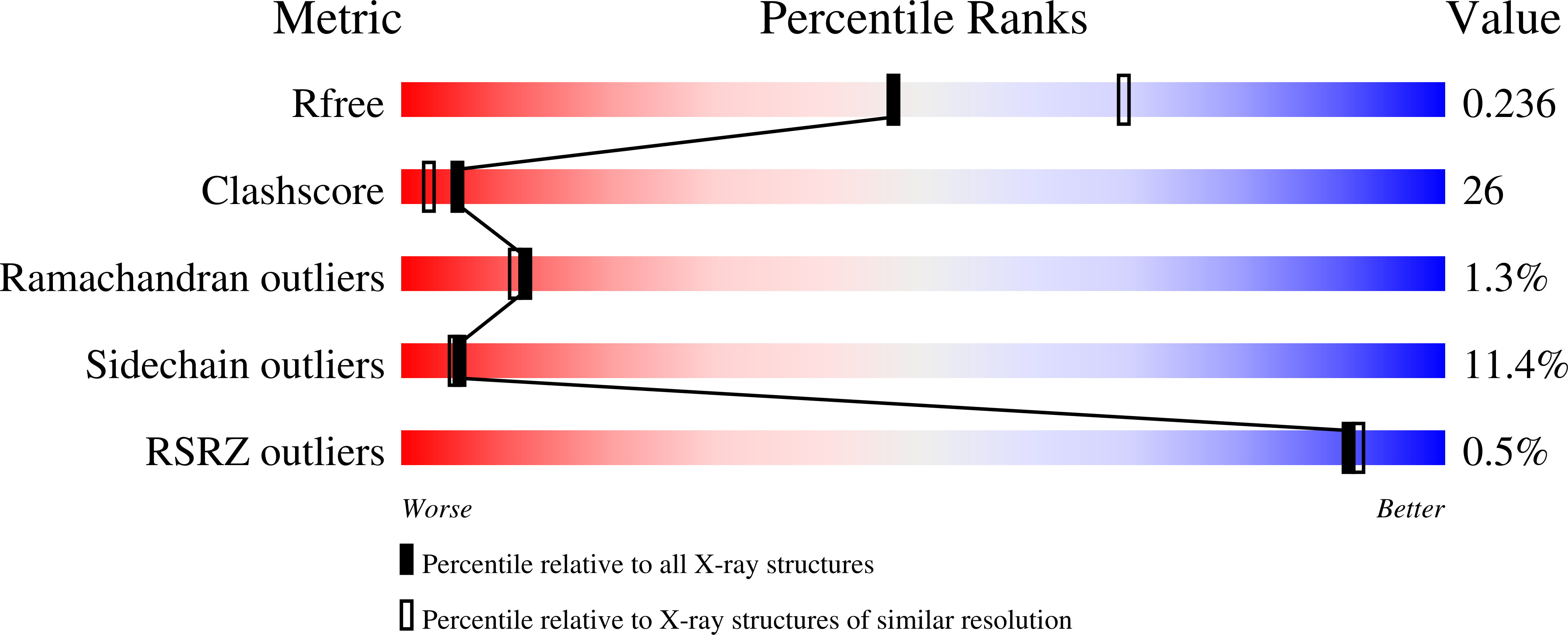The structural mechanism of GTP stabilized oligomerization and catalytic activation of the Toxoplasma gondii uracil phosphoribosyltransferase.
Schumacher, M.A., Bashor, C.J., Song, M.H., Otsu, K., Zhu, S., Parry, R.J., Ullman, B., Brennan, R.G.(2002) Proc Natl Acad Sci U S A 99: 78-83
- PubMed: 11773618
- DOI: https://doi.org/10.1073/pnas.012399599
- Primary Citation of Related Structures:
1JLR, 1JLS - PubMed Abstract:
Uracil phosphoribosyltransferase (UPRT) is a member of a large family of salvage and biosynthetic enzymes, the phosphoribosyltransferases, and catalyzes the transfer of ribose 5-phosphate from alpha-d-5-phosphoribosyl-1-pyrophosphate (PRPP) to the N1 nitrogen of uracil. The UPRT from the opportunistic pathogen Toxoplasma gondii represents a promising target for rational drug design, because it can create intracellular, lethal nucleotides from subversive substrates. However, the development of such compounds requires a detailed understanding of the catalytic mechanism. Toward this end we determined the crystal structure of the T. gondii UPRT bound to uracil and cPRPP, a nonhydrolyzable PRPP analogue, to 2.5-A resolution. The structure suggests that the catalytic mechanism is substrate-assisted, and a tetramer would be the more active oligomeric form of the enzyme. Subsequent biochemical studies revealed that GTP binding, which has been suggested to play a role in catalysis by other UPRTs, causes a 6-fold activation of the T. gondii enzyme and strikingly stabilizes the tetramer form. The basis for stabilization was revealed in the 2.45-A resolution structure of the UPRT-GTP complex, whereby residues from three subunits contributed to GTP binding. Thus, our studies reveal an allosteric mechanism involving nucleotide stabilization of a more active, higher order oligomer. Such regulation of UPRT could play a role in the balance of purine and pyrimidine nucleotide pools in the cell.
Organizational Affiliation:
Department of Biochemistry and Molecular Biology, Oregon Health and Science University, 3181 Southwest Sam Jackson Park Road, Portland, OR 97201-3098, USA.
















